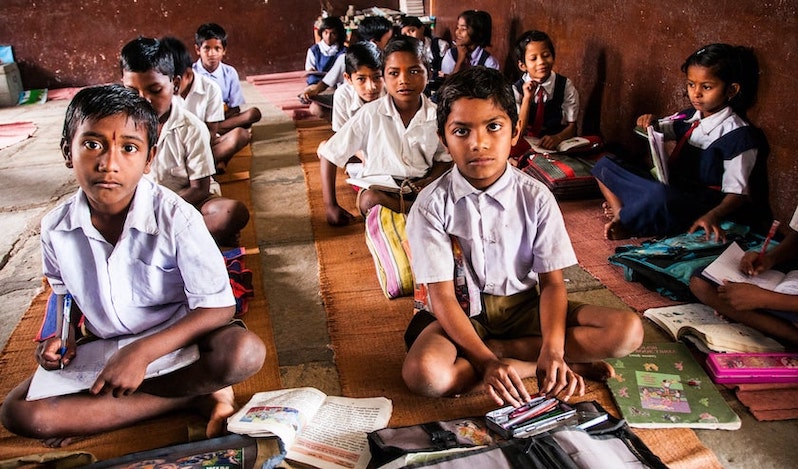Education is the cornerstone of individual growth and societal progress. Yet, access to quality education remains a challenge in remote and underserved areas. In the digital age, the need to bridge this educational divide is more pressing than ever. This article explores how innovative approaches are revolutionizing education delivery in remote areas, ensuring effective, results-driven methods for quality learning.
Teacher Training
Quality education delivery depends on well-prepared teachers, not just with curriculum updates but also with technology. Therefore, teacher training programs should be tailored to the needs of remote educators. Training in remote areas may include digital literacy, teaching through technology, and strategies for managing multi-grade classrooms.
Public-Private Partnerships
Collaboration between governments, non-profit organizations, and private sector entities is essential for revolutionizing education in remote areas. These partnerships can provide financial support, technological infrastructure, and expertise necessary to implement effective education methods.
Leveraging Technology
One of the most significant advancements in education delivery is the use of technology. Digitally-enabled, remote-synchronous classrooms have proven to be equally effective in comparison to regular teaching methodologies. With live, interactive, E-learning classes available, remote areas are no longer isolated from the wealth of learning provided by teachers, thereby tackling the issue of teacher shortage in India.
Access to Learning Resources
Access to textbooks, learning materials, and a conducive learning environment are often challenges in remote areas. Initiatives like Live, interactive, E-learning platforms, mobile libraries, book donation drives, and infrastructure development can help bridge these gaps.
Hybrid Learning
Hybrid learning, combining in-person and online instruction, has proven to be a powerful tool for quality education delivery. In remote areas, where there may be a lack of qualified teachers, this approach provides access to expert educators through live, interactive, E-learning classes. This enables students to learn at their own pace, catering to individual needs.
Community Outreach
In remote areas, involving the community in the education process is paramount. This engagement can take the form of local mentors, parents participating in their children’s education, and community-driven initiatives. Such involvement fosters a sense of ownership and accountability, making education a collective responsibility.
Flexible Curriculum
To adapt to the unique needs and challenges of remote areas, curricula must be flexible. This flexibility allows educators to address specific local issues, cultural nuances, references & dialects, and the practical requirements of the region.
Data-Driven Approach
To ensure effective, results-driven education, data plays a crucial role. By collecting and analyzing data on student performance, teachers can make informed decisions and adapt their teaching methods. This data-driven approach is especially valuable in remote areas where resources may be limited, and each student’s progress is of utmost importance.
Role of Community Workers in Remote Education
Quality education is a fundamental right for every child, regardless of their geographical location. In remote or Aspirational Districts, access to quality education can be challenging due to various socio-economic factors. To bridge this gap, implementing results-driven methods with the support of community workers or support staff is crucial.
Access to Remote Areas: Community workers play a pivotal role in reaching remote and underserved areas where formal educational infrastructure is limited or absent.
Local Understanding: They possess a deep understanding of the local culture, language, and community dynamics, making them effective intermediaries for education delivery.
Engagement and Trust: Community workers build trust and rapport with the local population, making it easier to engage students and parents in the learning process.
Pedagogical Training: Provide training in effective teaching methods, classroom management, and assessment techniques tailored to remote and diverse learning environments.
Cultural Sensitivity: Sensitize support staff to local customs and traditions to ensure respectful and culturally appropriate teaching.
Technology Integration: Equip them with the necessary digital skills to use technology for teaching and resource access.
Communication Skills: Training in effective communication with students, parents, and the community to build trust and cooperation.
Problem-Solving Skills: Support staff should be trained to adapt to unforeseen challenges and solve problems creatively in remote areas.
Education is the key to unlocking the potential of individuals and communities. Ensuring quality education in remote areas is not just a matter of social justice but also a necessity for the progress of society as a whole. The collective effort to implement effective, results-driven methods will enable every child, regardless of their geographical location, to access quality learning and pave the way for a brighter future.
Views of the author are personal and do not necessarily represent the website’s views.
Mr. Kushal Raj Chakravorty, Founder & Managing Trustee at Lotus Petal Foundation is an accomplished professional with a strong educational foundation, holding an engineering degree from BIT Mesra and an MBA from IIM Lucknow. With over two decades of corporate experience, he brings a wealth of knowledge and expertise to his endeavours. Mr. Chakravorty’s true passion lies in the realm of education and children’s well-being. His journey as a founder reflects his dedication to leveraging his skills and experiences to create positive change in the lives of children and within the broader community. TEDx Speaker and Board Member at IIM Amritsar.



